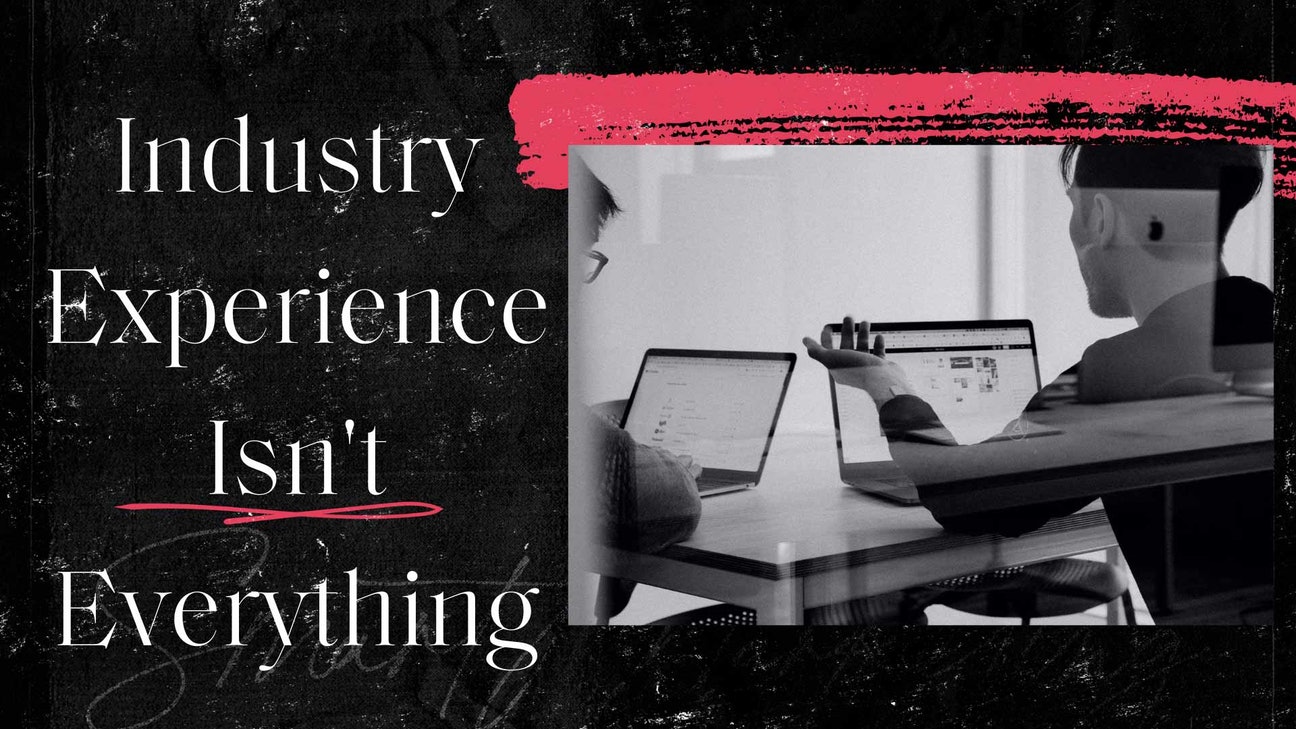As a business leader, you’ve developed perspective over the years working in your industry, which is a good thing for your organization. But there’s a negative side— you may have become so focused on the industry trends and perspectives that you really can only see the perspective of the business leaders in your space. It all feels so very unique, and you may think the only solution is to work with a marketing partner or firm that has experience specific to your industry.
Well, I’m taking a stand here to say that industry experience—when looking for a marketing partner—is not a prerequisite for good work. Your industry is nuanced, sure, but that doesn’t mean that an outside perspective “won’t work.” To tell this story more completely and with real conversations, I’m going to highlight a SaaS company we went through the buying process with. They had understandable fears about industry application—whether or not we understood the uniqueness of their industry enough to be able to help them—and are a great example of why industry specificity isn’t always helpful.
If you knew the answer, you’d already be solving the problem.
The fact is, whenever you hire a marketing partner or consultancy they’re not going to know your industry as well as you do. If you hire a tax accountant, they won’t immediately understand the nuances of your expense structure. If you hire a sales coach, they won’t be in meetings with your team, hearing the prospect from day one. You will always know your industry better than any consultant ever could.
And that’s the entire point.
Being so close to your industry is one of the main reasons you ask for an outside perspective. Chances are, you’ve been beating your head against a wall trying to solve your problem—whether it’s lead generation, brand awareness, or keeping the sales funnel full—for a very long time. You need someone with fresh eyes, fresh ideas, and different experience to get you through that barrier.
The hard truth is that your problem is not unique to your business or industry. Practically every business struggles to generate leads, or to get their brand positioning just right. And in a lot of cases, the solutions tend to depend more on an individual business’ unique situation than on the industry they live in.
In our example, gathering customer data is not just a problem that SaaS companies have—it’s something that every company in industries like manufacturing and retail also experiences. Even though it may feel like a marketing partner does not understand the nuances to your audience and industry, they’ve probably solved the problem for another company.
In our own experience gathering data, we’ve run into scheduling problems which threw off research, customers who won’t respond to communications, and a simple lack of time for conversations and input gathering. So ask yourself this question: Does how a partner solves the problem really matter if you’re ultimately getting the problem solved?
People buy emotionally, and they always will.
I’ve written about the emotional connection buyers need to make before, and I’ll continue to harp on this key point until the day I die. Everyone—you, me, your buyers—buys emotionally and justifies that purchase rationally. It does not matter if you’re selling in a business-to-business environment or a business-to-consumer environment, consumers of any product need to be emotionally invested in order to purchase.
This is relevant because it highlights the fact that even in the most formal business environments, at the end of the day your buyer is a human being. Humans don’t buy business services differently than they do personal purchases. They just have to jump through a few different hoops to make it happen.
This is not to say that there are not industry-specific buzzwords that you’ll need to use in order to be considered in a purchasing group. For example, at Element Three we have to showcase the marketing tactics we use to solve business problems in order to be attractive to potential partners. The end result of a website build is still more tangible and understandable to a potential client than a page trying to explain which marketing strategies solve which business objectives.
To make this even more real, consider the last purchase you made for your business. What process did you go through? Did you envision how this product or service would make your life better or what you’d be able to do with it?
Complete certainty is a myth.
Going back to that SaaS company example, I recall one conversation we had during which I referenced the need to do a mini “trust fall.” From the beginning of the process, this buyer was a thorough researcher. They spoke with companies we’ve worked with of similar size and with similar challenges. They’d gone through multiple conversations with our team. They even gave us the grace of redoing one conversation because, quite frankly, we botched it. Still, we got to the end, and despite all that effort they still had some uncertainty in their choice.
That’s normal. There will never be complete comfort in any important business decision.
You can do all the research you want, talk to as many current and past customers as possible, and consume every case study a company has to offer. You’ll never find a crystal ball guaranteeing success in your engagement. You’re not going to find an identical past client who had your identical problem that got solved in an identical way—it just doesn’t work like that. This is why you have to do a mini trust fall. That fall should be made much softer by the fact that it is in everyone’s best interest for great work to be the outcome. We want to serve our clients in the best way possible so that they will be partners of ours for years and years to come. Everyone has heard the adage that it’s cheaper to keep the clients you have than to find new ones, and it definitely holds true here. We also want to have great case studies for new potential clients to consume, and happy partners to give them as references.
It is helpful to keep in mind that there will always be some doubt in a purchase. There was doubt when you bought your last car—did I just buy a lemon, will it break down before my payments are up—and there will be doubt when you make your next business purchase. Remember to not be paralyzed by uncertainty. The only way to know is to do, and to go into the relationship knowing that both sides want nothing but success all around.
Going to market is about principles, not situations.
It’s not always fun to do, but putting your hand up and admitting when you get it wrong is a necessary part of growth and development. This is our team raising our hand and saying we got it wrong. Element Three used to go to market with three industries: specialty healthcare, technology, and outdoor. At some point, we took a step back and asked whether there is anything truly different across these industries. There isn’t. They have different models and different offers, but what we found across all market-leading brands is that they had a great story, a solidified and effective strategy, and an actionable scorecard that allowed iteration and improvement on the story and strategy over time.
Industries are different, no doubt. But they’re not different enough that it’s critically important to find a partner with industry experience before you start to solve your problem. Principles remain constant regardless of the situation. Good work is good work—no matter what industry you’re in.





